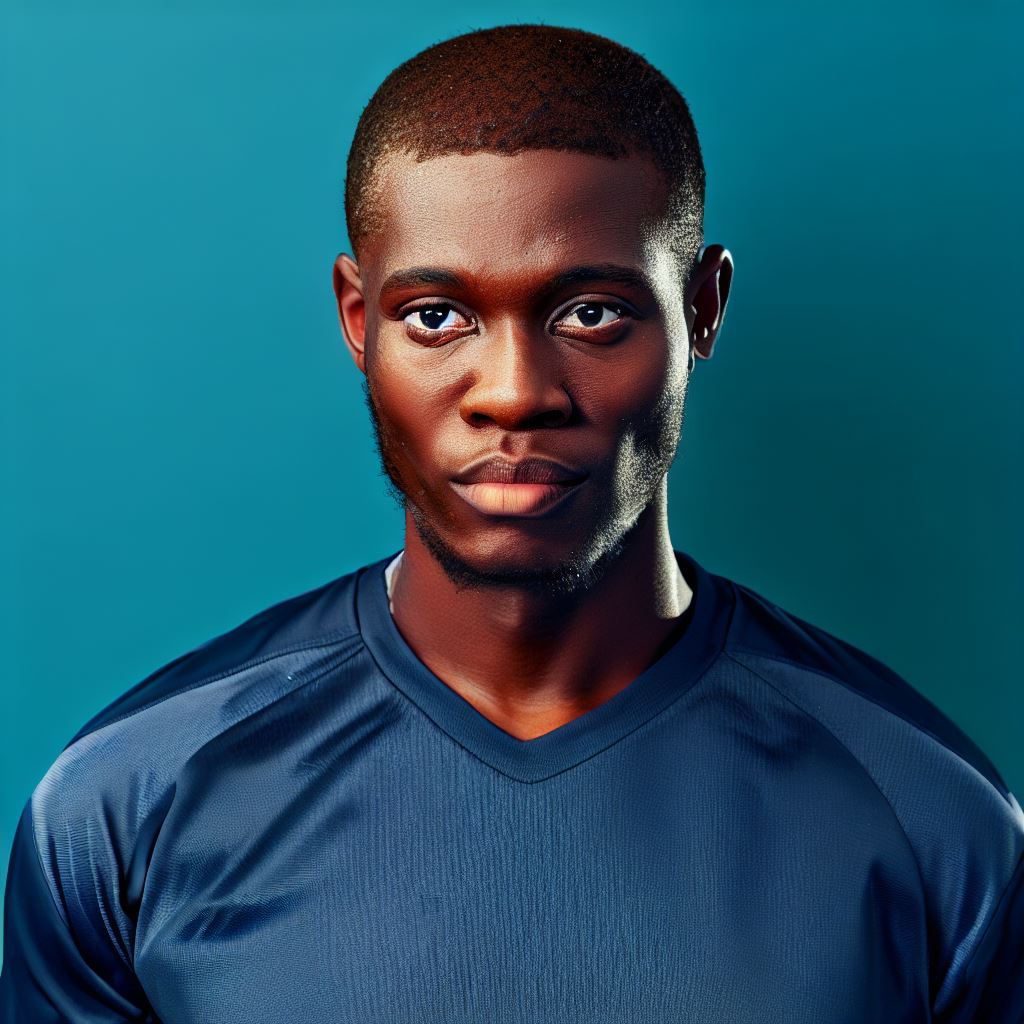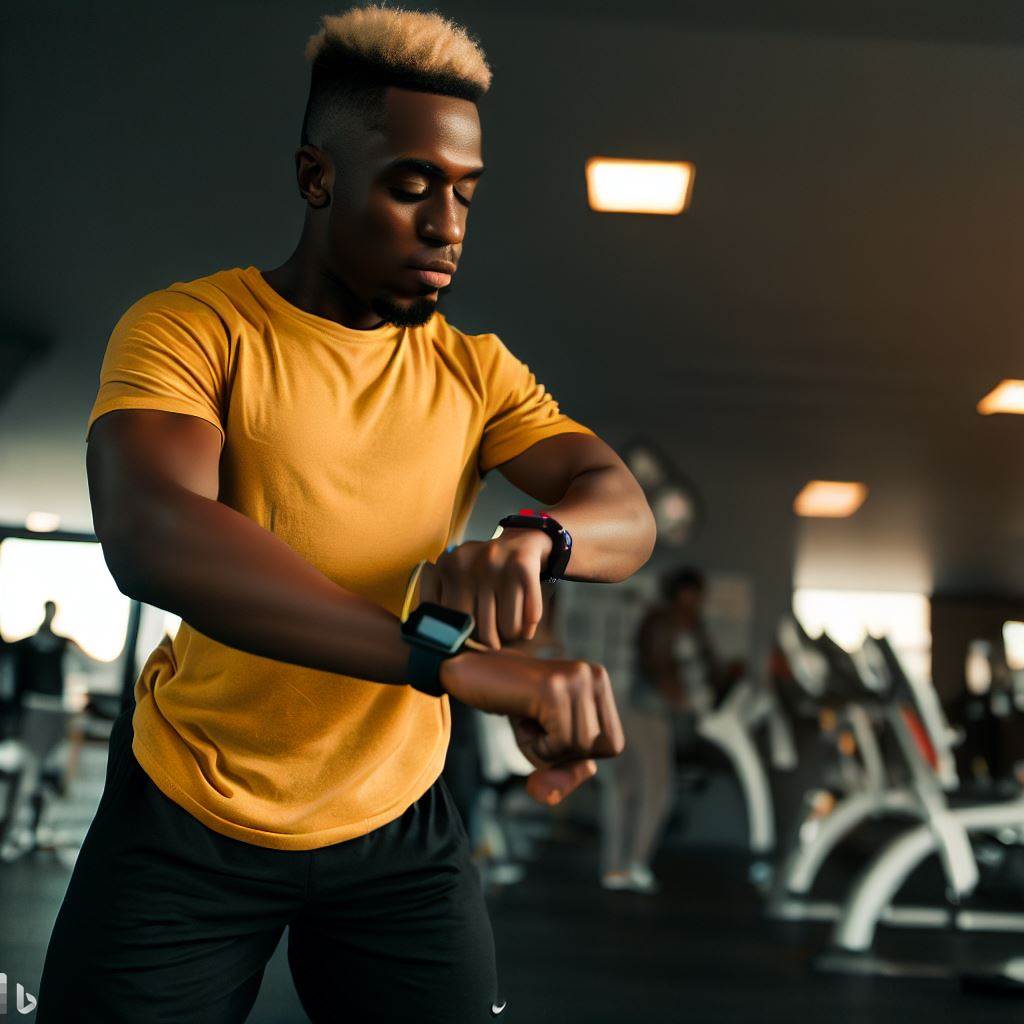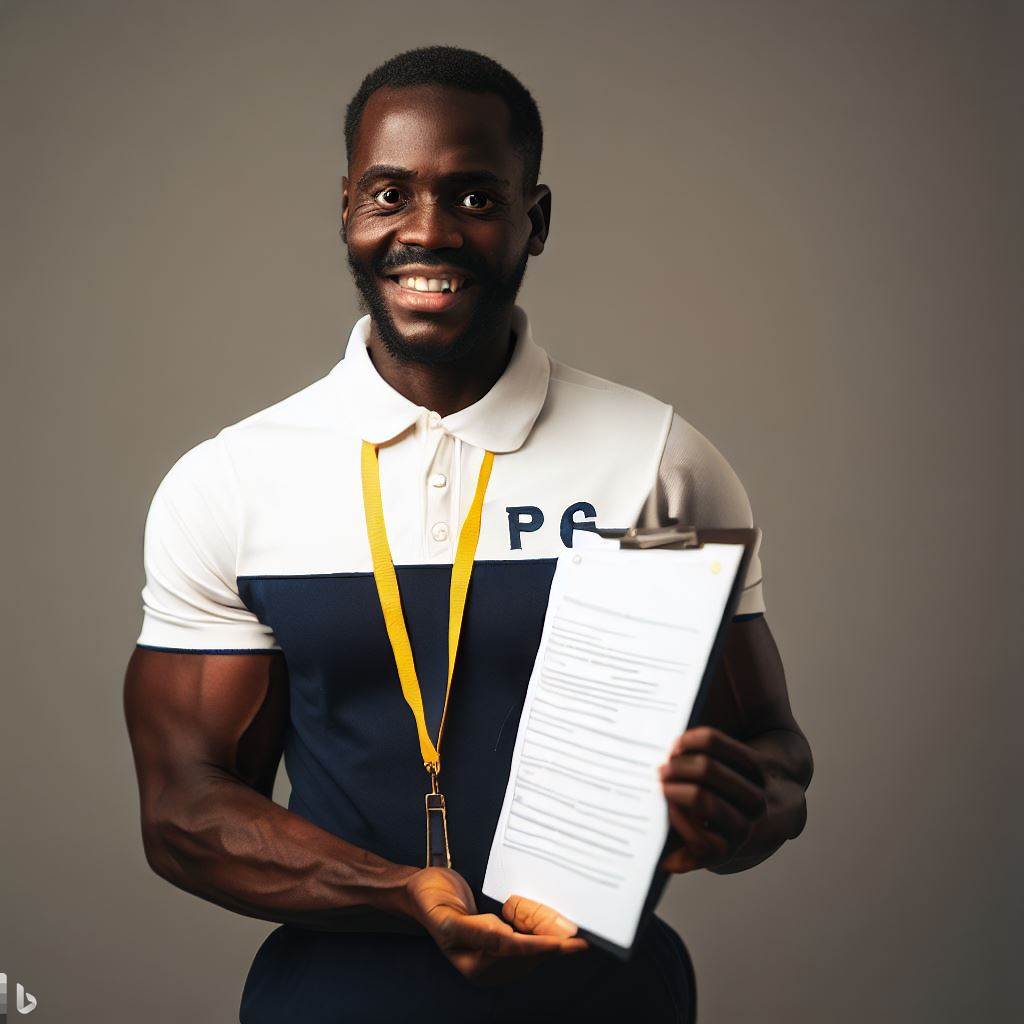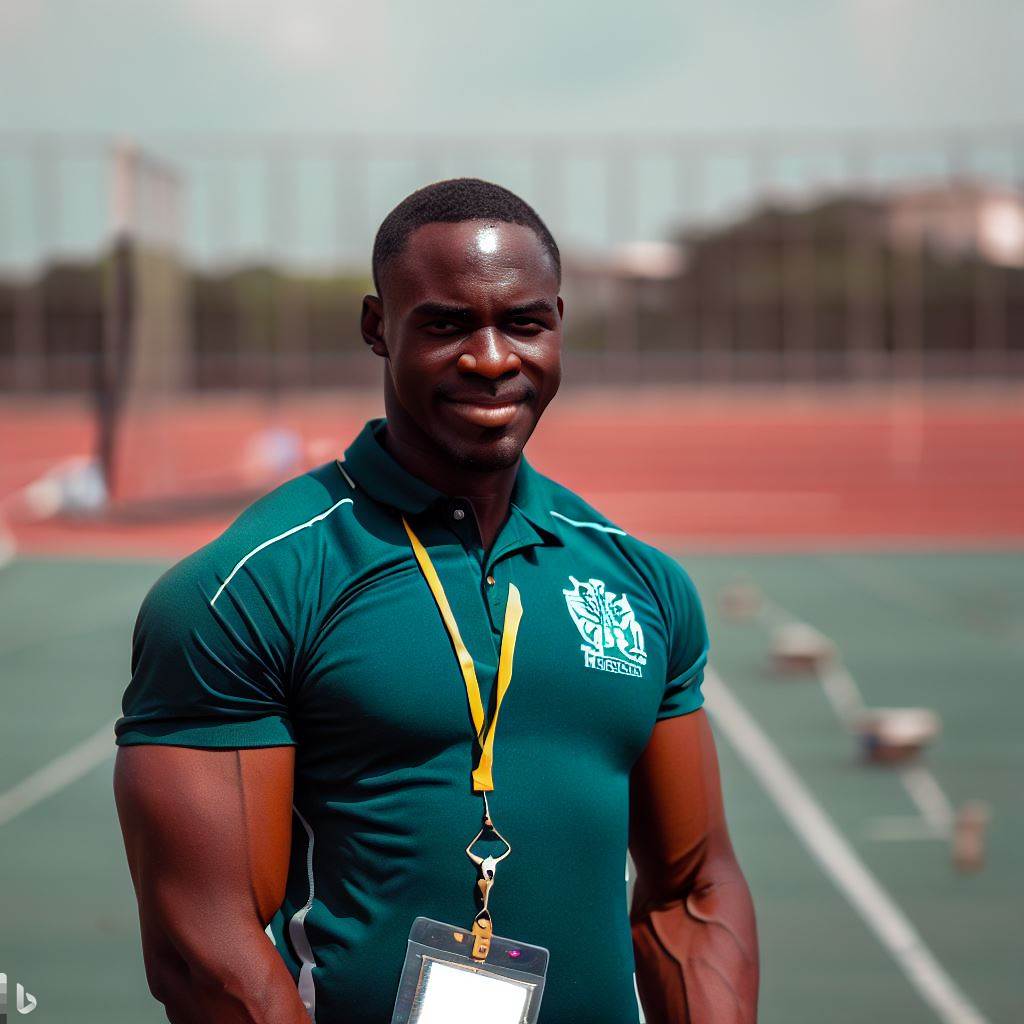Introduction
Special needs education plays a crucial role in Nigeria, ensuring inclusive education for all students.
It promotes equal opportunities and supports the development of individuals with diverse learning needs.
The focus of this article is Physical Education (PE) teaching specifically tailored for special needs students in Nigeria.
PE is an essential component of education, contributing to the overall physical and mental well-being of individuals.
For special needs students, it offers numerous benefits, such as improved motor skills, social interaction, and self-confidence.
However, teaching PE to special needs students requires careful planning and adaptation to ensure inclusivity and maximize learning outcomes.
Educators need to consider the unique abilities, limitations, and specific needs of each student, creating an individualized approach.
In Nigeria, the inclusivity of special needs students in PE has improved over the years, but there is still much work to be done.
The lack of specialized training for PE teachers and limited resources are some of the challenges faced.
This article aims to raise awareness about the importance of specialized PE teaching for special needs students in Nigeria.
It will discuss strategies, resources, and the role of educators in creating inclusive and engaging PE experiences for these students.
By promoting inclusive PE teaching, Nigeria can ensure that every student can actively participate and benefit from physical education, regardless of their individual abilities.
Challenges in Special Needs Education in Nigeria
Special Needs Education in Nigeria faces a multitude of challenges that hinder the progress and success of students with disabilities.
These challenges include:
Lack of awareness and understanding of special needs
One of the major challenges facing special needs education in Nigeria is the lack of awareness and understanding of disabilities.
Many people, including parents, teachers, and even policymakers, have limited knowledge about the various types of disabilities and how to effectively support students with special needs.
Inadequate funding for inclusive education
The funding allocated to special needs education in Nigeria is woefully insufficient.
The government needs to invest more resources to ensure that students with disabilities receive the necessary support and accommodations to excel academically.
Without adequate funding, it is challenging to provide appropriate training, infrastructure, and resources for inclusive education.
Limited availability of trained special education teachers
Another major challenge is the shortage of qualified special education teachers.
There is a significant scarcity of teachers who have the necessary training and expertise to support students with disabilities.
This shortage further exacerbates the already existing disparities in special needs education in Nigeria.
Inaccessible infrastructure and facilities for special needs students
The lack of accessible infrastructure and facilities presents a significant obstacle for special needs students in Nigeria.
Many schools do not have the necessary facilities, such as ramps, elevators, or modified classrooms, to accommodate students with physical disabilities.
This lack of accessibility limits the participation and inclusion of these students in mainstream education.
Effects of these challenges
The aforementioned challenges have severe consequences for students with special needs in Nigeria:
1. Limited access to quality education
Students with disabilities often face barriers to accessing quality education due to the challenges mentioned above.
This lack of access greatly hinders their overall development and potential for future success.
2. Low academic performance
Due to the absence of trained special education teachers and inadequate support, students with disabilities experience lower academic performance compared to their peers without disabilities.
Without the proper accommodations and interventions, these students struggle to keep up with the curriculum.
3. Social exclusion and stigmatization
Inaccessible infrastructure and limited awareness contribute to the social exclusion and stigmatization of students with disabilities.
They often face discrimination and are marginalized within their school and community, leading to feelings of isolation and low self-esteem.
4. Limited employment opportunities
The lack of inclusive education and support for students with disabilities impacts their future employment prospects.
Without the necessary skills and qualifications, they face significant challenges in accessing gainful employment and becoming financially independent.
Possible solutions
To address the challenges in special needs education in Nigeria, the following measures can be implemented:
1. Increased awareness and education
Efforts should be made to raise awareness and educate the general public, parents, and policymakers about the various types of disabilities and the importance of inclusive education.
2. Improved funding
The government should allocate more funds to special needs education to ensure the provision of necessary resources, training for teachers, and the development of accessible infrastructure.
3. Enhanced teacher training
Investing in the training and professional development of special education teachers is crucial.
This will equip them with the required skills and knowledge to effectively support students with disabilities.
4. Accessible infrastructure
Efforts must be made to modify existing infrastructure and facilities to make them accessible to students with disabilities.
This includes constructing ramps, accessible toilets, and modified classrooms.
By addressing these challenges and implementing appropriate solutions, Nigeria can pave the way for a more inclusive and equitable education system for students with special needs.
Read: Adapting to COVID-19: PE Teaching in Nigeria Today
Importance of Physical Education in Special Needs Education
Physical education plays a vital role in the overall development and well-being of students with special needs.
It provides numerous benefits that contribute to their physical, social, and emotional growth.
Benefits of Physical Activity for All Students
- Physical activity helps students maintain a healthy weight and reduces the risk of chronic diseases.
- Regular exercise promotes cardiovascular health and strengthens the muscles and bones.
- Physical education improves coordination, balance, and flexibility, enhancing overall motor skills.
- Engaging in physical activity enhances cognitive functions, such as memory, attention, and problem-solving abilities.
- Regular participation in physical education classes fosters discipline, perseverance, and self-confidence.
Specific Benefits for Special Needs Students
- Physical education helps special needs students improve their motor skills and coordination.
- Engaging in physical activities provides opportunities for social interaction and promotes inclusion.
- Physical education classes enhance emotional well-being, reducing stress and promoting positive mental health.
- Regular exercise can alleviate symptoms of certain disabilities, such as improved cardiovascular function for students with Down syndrome.
- Physical education encourages independence and self-advocacy skills, empowering special needs students.
Contributing to an Inclusive Learning Environment
Physical education can contribute significantly to creating an inclusive learning environment for students with special needs.
By integrating all students in physical activities, it promotes unity, understanding, and acceptance among diverse individuals.
Inclusive physical education fosters peer relationships and breaks down barriers, fostering a sense of belonging for special needs students.
It helps eliminate stigma and discrimination, promoting an atmosphere of respect and equality.
With adaptations and modifications, physical education classes can cater to the unique needs and abilities of every student, ensuring their active participation.
Inclusive physical education also educates all students about diversity and encourages them to embrace differences.
It promotes empathy, tolerance, and compassion, creating a supportive and inclusive school culture.
By engaging in physical activities together, students learn to appreciate and celebrate each other’s strengths, abilities, and differences.
Most importantly, physical education holds immense importance in special needs education.
Its benefits extend beyond the physical aspect, positively impacting the social and emotional well-being of students.
By creating an inclusive learning environment, physical education helps build a more inclusive society, where everyone has equal opportunities to thrive.
It is essential to prioritize and support physical education programs that cater to the diverse needs of all students, including those with special needs.
Read: Studying Sports Journalism in Nigeria: Top Universities
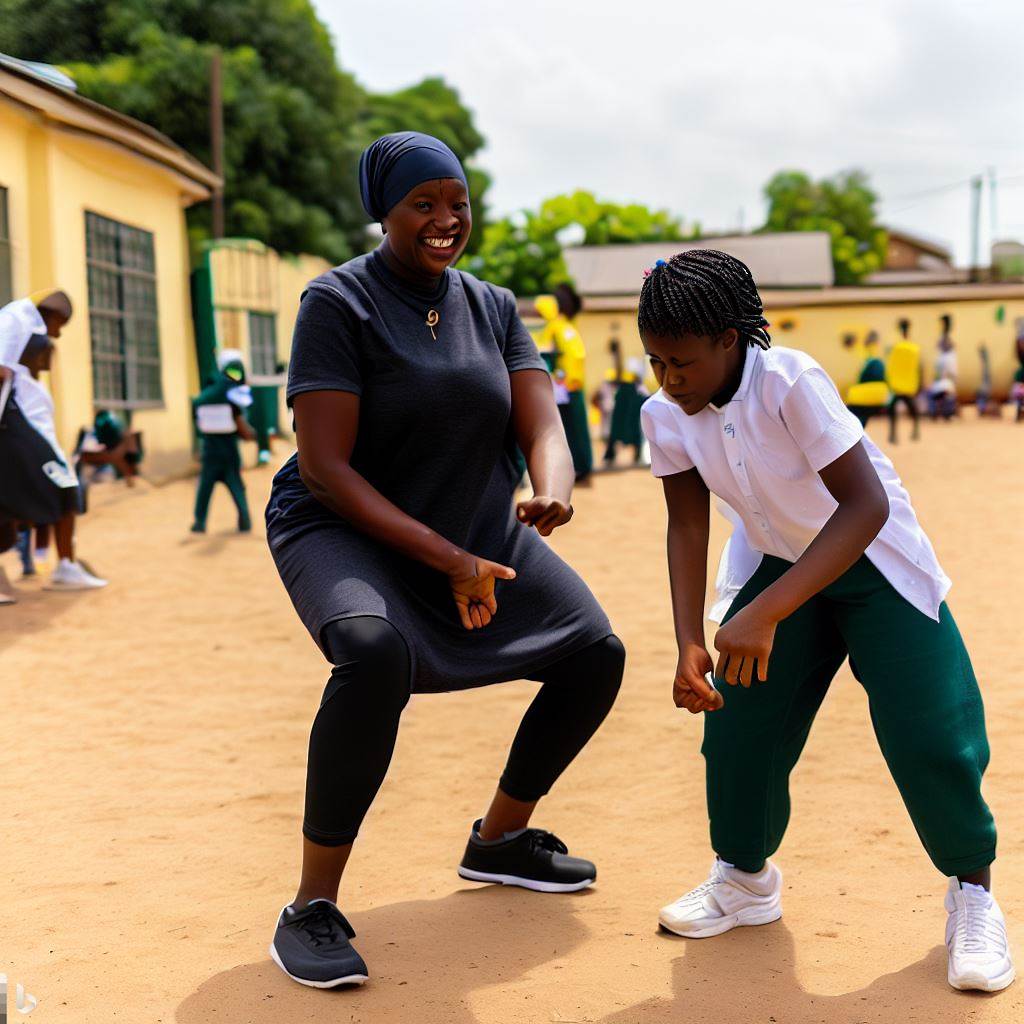
Adaptations and Strategies for PE Teaching in Nigeria
Overview of Different Disabilities and Required Adaptations in Physical Education
- Intellectual disabilities require simplified instructions and repetition for understanding.
- Students with physical disabilities can benefit from modified equipment and adaptive techniques.
- Autism spectrum disorders may need visual supports and structured routines in PE classes.
- Students with sensory impairments may require accommodations such as using tactile cues or sign language.
Importance of Individualized Educational Plans (IEPs) for Special Needs Students
- IEPs outline specific goals and accommodations tailored to each student’s unique needs.
- They ensure that special needs students receive appropriate support and access to physical education.
- IEPs foster a collaborative approach between educators, parents, and therapists to promote student success.
- Regular review and update of IEPs help track progress and make necessary adjustments to support student growth.
Examples of Adapted PE Activities and Equipment
- Modified sports like wheelchair basketball or seated volleyball encourage inclusive participation.
- Use of sensory equipment such as therapy balls or balance beams can enhance motor skills development.
- Visual supports like PE schedules or picture cards aid in structuring routines and promoting independence.
- Adapted equipment like hand pedals or specialized swimming aids enable full participation for students with physical disabilities.
Role of Inclusion and Collaboration Among Regular and Special Education Teachers
- Inclusion promotes equality, acceptance, and social interactions among students of all abilities.
- Regular education teachers can provide differentiated instructions to accommodate various learning needs.
- Special education teachers offer expertise in implementing adaptations and modifying activities for special needs students.
- Collaboration ensures consistent communication and collective effort in supporting special needs students in PE classes.
Basically, special needs students in Nigeria require adaptations and strategies to fully participate in physical education.
Understanding different disabilities and implementing appropriate accommodations is crucial. Individualized Educational Plans (IEPs) facilitate personalized support, while adapted activities and equipment enhance inclusion.
Collaboration between regular and special education teachers promotes a comprehensive approach to meet students’ diverse needs.
By embracing these adaptations and strategies, we can create an inclusive and enriching PE experience for all students.
Read: Gender Roles in Physical Education Teaching in Nigeria
Success Stories and Best Practices in PE Teaching for Special Needs Students in Nigeria
Success stories of inclusive PE programs in Nigeria
- Inclusive PE programs in Nigeria have shown remarkable success in supporting special needs students.
- One success story is the case of Sadiq, a student with Down Syndrome, who actively participates in PE class.
- Through adapted activities and individualized support, Sadiq has developed physical skills and improved his overall well-being.
- Another success story is the inclusion of Ibrahim, who is visually impaired, in a PE program.
- With the use of auditory cues and modifications, Ibrahim has been able to engage in various physical activities.
- These success stories highlight the positive impact of inclusive PE programs on special needs students in Nigeria.
Role of supportive school administration and community involvement
- Supportive school administration plays a crucial role in ensuring the success of inclusive PE programs.
- School administrators create an inclusive environment by providing necessary resources and accommodations.
- They also encourage teachers to receive proper training and professional development in inclusive PE teaching.
- Community involvement is equally important in promoting inclusive PE programs for special needs students.
- Local organizations, parents, and community members can contribute by volunteering, providing resources, and raising awareness.
- The collaboration between school administration and the community enhances the inclusivity and effectiveness of PE teaching for special needs students.
Importance of ongoing professional development for teachers
- Ongoing professional development is essential for PE teachers to effectively support special needs students.
- It helps teachers stay updated with the latest research, strategies, and techniques in inclusive PE teaching.
- Workshops and training sessions provide teachers with the necessary skills to adapt activities and meet individual needs.
- Continuous learning enables teachers to create inclusive and accessible learning environments in PE classes.
- By receiving ongoing professional development, teachers can fulfill their role in enhancing the physical development and well-being of special needs students.
Tips and recommendations based on best practices in the field
- Provide inclusive PE training and workshops for teachers to enhance their skills and knowledge.
- Customize activities and adaptations to meet the unique needs of each special needs student.
- Collaborate with specialists, such as occupational therapists and physical therapists, for additional guidance and support.
- Foster a supportive and inclusive classroom environment by promoting peer interactions and acceptance.
- Regularly assess and track the progress of special needs students in PE classes to ensure effective support.
- Encourage parent involvement and communication to better understand and meet the specific needs of students.
Lastly, success stories of inclusive PE programs in Nigeria highlight the positive impact on special needs students.
Supportive school administration and community involvement play vital roles in creating inclusive environments.
Ongoing professional development for teachers ensures effective support, and incorporating best practices enhances the overall PE teaching experience for special needs students in Nigeria.
Read: Women in Sports Broadcasting: Profiles from Nigeria
Conclusion
The challenges of PE teaching in special needs education in Nigeria cannot be ignored.
The importance of providing inclusive physical education for these students is paramount.
It is crucial for educators and policymakers to continue their efforts in improving inclusive education for special needs students in Nigeria.
This includes providing proper training and resources for PE teachers.
Furthermore, it is essential to inspire readers to support and advocate for equal opportunities in physical education for all students.
Every child, regardless of their abilities, deserves a chance to participate in PE and enjoy the benefits it brings.
By working together, we can create a more inclusive and supportive environment for special needs students in Nigeria.
Let’s strive for equal access to quality physical education and ensure that every child can reach their full potential.

